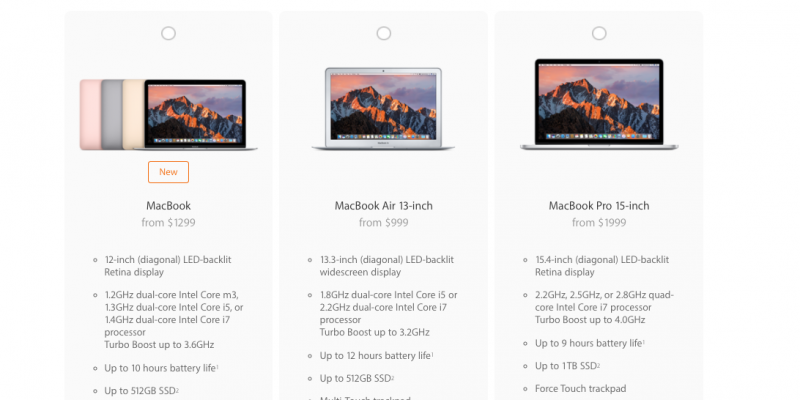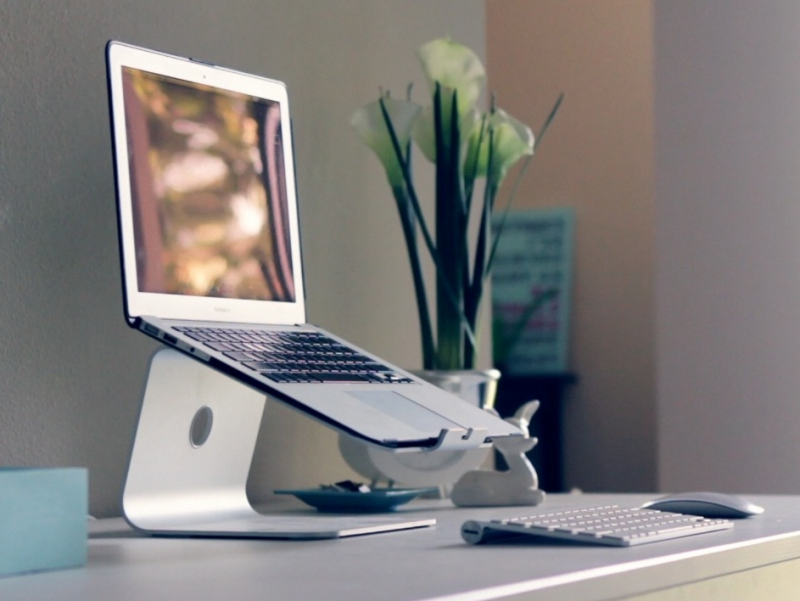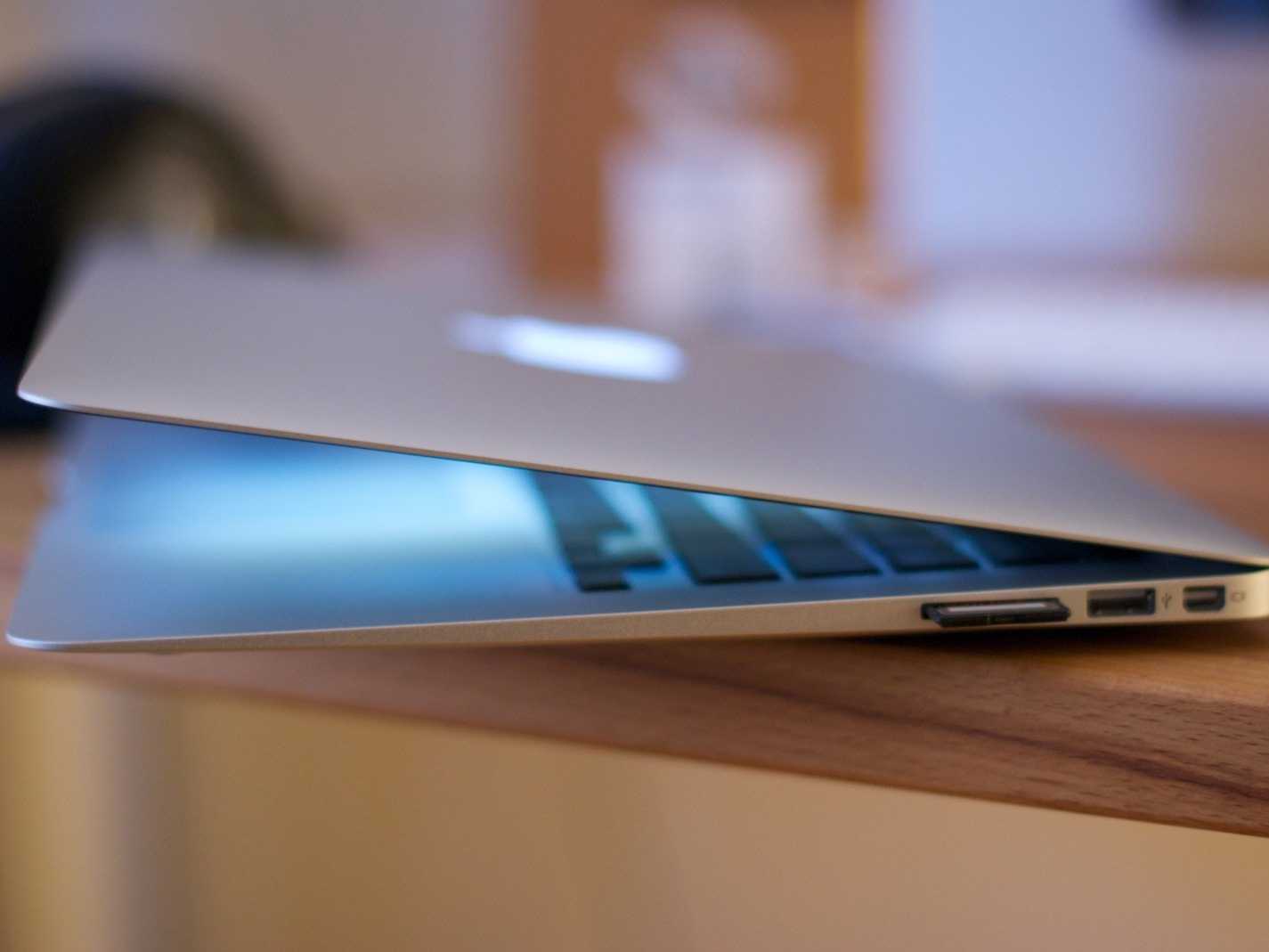Apple kicked off its annual developers conference on Monday and, in one of the more surprising announcements, unveiled a refresh of its MacBook Air laptop.
That said, it’s a minor change. The notebook now starts with a 1.8 GHz processor. It had started with a 1.6 GHz processor. That means it should be a little bit faster than it was before.
But that’s it. You wouldn’t be able to discern this from Apple’s site, but the processor is still from Intel’s fifth generation, known as Broadwell. We’re currently on the seventh generation, Kaby Lake.
Kaby Lake isn’t a massive jump from the generation of Intel chips that came between (Skylake), but it is faster, stronger, and more efficient with battery life than what the MacBook Air is using. This is why Apple updated its MacBook and MacBook Pro lines this week to include the new chips this week.

More importantly, it's in better shape to last going into the future. Buying a laptop is a multiyear investment. The MacBook Air may run perfectly fine for most to start, but it's not going to be as capable over time. And it doesn't help that you can't upgrade it after purchasing, a restriction Apple puts on every Mac laptop.
It's understandable that the MacBook Air looks appealing. It's the MacBook Air! It has always been good. Macs are known for quality, and the Air is the only model that starts below $1,000.
But it's not a good value. Everything beyond the processor bump is the same as before. To run through the high-level reasons that that's mostly a bad thing:
- The display is rough. It has a resolution of 1440 x 900, for one, meaning it's not sharp enough to watch videos in full HD (1080p), and it doesn't give you as much room to have multiple windows onscreen. There are laptops half the price that pack more pixels. That display is also a TN panel. It's a good TN panel, but TN as a technology is neither as colorful nor as easy to see at an angle as the best displays that use the alternative IPS tech. It is terrible compared with what you'd find on a MacBook and MacBook Pro, both of which use IPS and are richer-looking for it. There are no USB-C ports. It's a bit of a mess now, but USB-C is faster and more widely applicable across device types than traditional USB. More importantly, it's where the majority of smartphones, laptops, and other non-Apple consumer devices are headed. The design is dated. Nobody will say the MacBook Air is a burden, but the best laptops in this price range are now slimmer and lighter, making the "Air" name something of a misnomer. Devices like the Dell XPS 13 also have far smaller bezels around their displays, letting you see more at once.
To be clear, the MacBook Air still does plenty right. It's well-built, its keyboard hits the right point between slim and responsive (even more than Apple's newest laptops), it gets an excellent 10 to 12 hours of battery, and it has the fantastic Apple-made trackpad. If you absolutely need macOS, you could maybe justify buying it.

But for the price it takes to get a decent configuration - at least $1,199 to get a respectable 256 GB of storage - you can do better. MacOS isn't like iOS; it's good and it has its devotees, but there isn't that much you can't duplicate with Windows 10. There's nothing on the level of iMessage, which keeps people tethered to their iPhones. If anything, Windows is the stronger platform for things like gaming.
Beyond that, it seems clearer than ever that Apple would prefer you to buy something else:
- It has already killed off the 11-inch MacBook Air. The 12-inch MacBook is slimmer and lighter. The company on Monday cut the starting price of the 13-inch non-Touch Bar MacBook Pro, which is thinner than the Air and nearly as light, down to a more competitive $1,299. Apple also announced further updates to its iPad Pro line and detailed several upgrades to iOS 11 that would make it work a bit more like a Mac. More and more, that's the entry-level "laptop" that Apple wants to position beneath the MacBook and MacBook Pro. If symbolism is worth anything, the MacBook Air update got exactly one sentence at the tail end of Apple's press release announcing its Mac updates this week. It also doesn't have a "new" label at the top of Apple's Mac page, despite the upgrade.
All told, even with the slight processor boost, the MacBook Air is still fundamentally a laptop from 2015 with a design from 2010. It was a wonderful general-consumer laptop for a remarkably long time, but it stood still as the years passed.
Even if its enduring popularity seems to have persuaded Apple to make some update, the company appears ready to move on. You should, too. If you can't scrounge up the cash to buy a MacBook or MacBook Pro, consider an HP Spectre x360 or Lenovo Yoga 910 instead.

